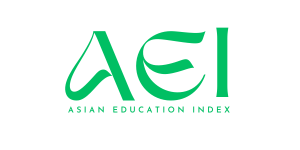Key Requirements For Building An Enlightened Society In The Process Of National Renaissance
Keywords:
national renaissance, enlightened society, civic educationAbstract
National renaissance is a multifaceted process involving the revival of a nation's cultural identity, social cohesion, political integrity, and economic prosperity. Central to this renaissance is the creation of an enlightened society—one that fosters knowledge, critical thinking, ethical values, and active civic engagement among its citizens. This article explores the fundamental requirements necessary to build such a society, focusing on comprehensive education, cultural preservation, social justice, and participatory governance. Drawing on global experiences and theoretical frameworks, the study provides a roadmap for policymakers and scholars aiming to facilitate sustainable national development through enlightenment.
References
Baiocchi, G. (2001). Participation, Activism, and Politics: The Porto Alegre Experiment. Brazilian
Political Science Review, 1(1).
Banks, J. A. (2008). An Introduction to Multicultural Education. Pearson.
OECD. (2018). Education at a Glance 2018: OECD Indicators. OECD Publishing.
Putnam, R. D. (1993). Making Democracy Work: Civic Traditions in Modern Italy. Princeton
University Press.
Sahlberg, P. (2015). Finnish Lessons 2.0: What Can the World Learn from Educational Change in
Finland? Teachers College Press.
Sen, A. (2009). The Idea of Justice. Harvard University Press.
Transparency International. (2022). Corruption Perceptions Index 2022. Retrieved from
https://www.transparency.org/en/cpi/2022/index/nzl
UNESCO. (2015). Education for All Global Monitoring Report 2015. UNESCO Publishing.
World Bank. (2017). Worldwide Governance Indicators. Retrieved from
Downloads
Published
Issue
Section
License
Copyright (c) 2025 Gulzoda Uzoqova

This work is licensed under a Creative Commons Attribution-NonCommercial 4.0 International License.
User Rights
Under the Creative Commons Attribution-NonCommercial 4.0 International (CC-BY-NC), the author (s) and users are free to share (copy, distribute and transmit the contribution).
Rights of Authors
Authors retain the following rights:
1. Copyright and other proprietary rights relating to the article, such as patent rights,
2. the right to use the substance of the article in future works, including lectures and books,
3. the right to reproduce the article for own purposes, provided the copies are not offered for sale,
4. the right to self-archive the article.













